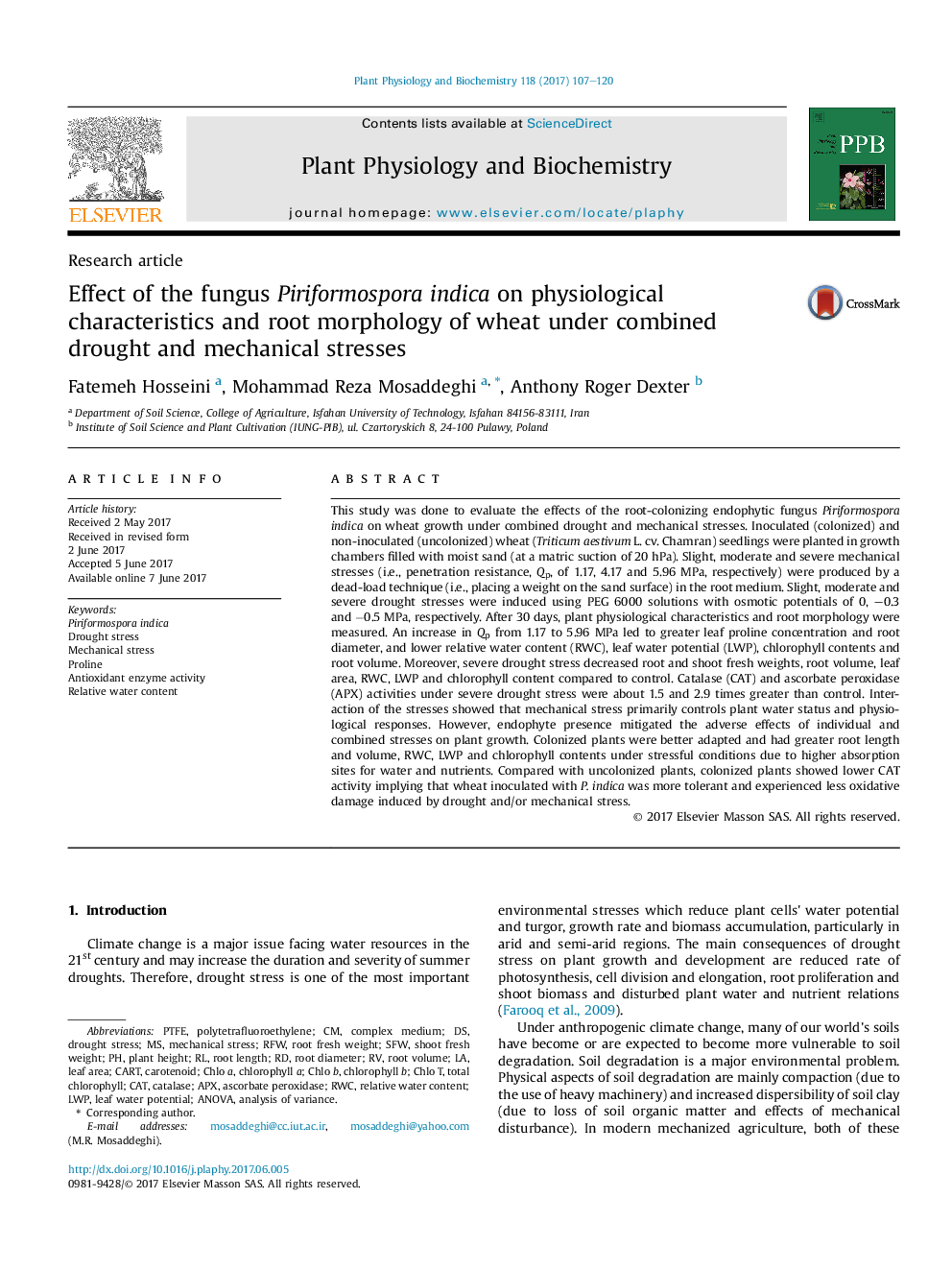| کد مقاله | کد نشریه | سال انتشار | مقاله انگلیسی | نسخه تمام متن |
|---|---|---|---|---|
| 5515427 | 1541903 | 2017 | 14 صفحه PDF | دانلود رایگان |

- When stresses were applied separately, drought had the greater effect on plant growth.
- Mechanical stress primarily controlled plant responses under combined stresses.
- Inoculation of wheat roots with P. indica mitigated the effects of stress.
- Colonized plants showed less oxidative damage induced by drought and/or mechanical stresses.
- Colonized plants are better adapted to stress due to more absorption sites for water and nutrients.
This study was done to evaluate the effects of the root-colonizing endophytic fungus Piriformospora indica on wheat growth under combined drought and mechanical stresses. Inoculated (colonized) and non-inoculated (uncolonized) wheat (Triticum aestivum L. cv. Chamran) seedlings were planted in growth chambers filled with moist sand (at a matric suction of 20 hPa). Slight, moderate and severe mechanical stresses (i.e., penetration resistance, Qp, of 1.17, 4.17 and 5.96 MPa, respectively) were produced by a dead-load technique (i.e., placing a weight on the sand surface) in the root medium. Slight, moderate and severe drought stresses were induced using PEG 6000 solutions with osmotic potentials of 0, -0.3 and â0.5 MPa, respectively. After 30 days, plant physiological characteristics and root morphology were measured. An increase in Qp from 1.17 to 5.96 MPa led to greater leaf proline concentration and root diameter, and lower relative water content (RWC), leaf water potential (LWP), chlorophyll contents and root volume. Moreover, severe drought stress decreased root and shoot fresh weights, root volume, leaf area, RWC, LWP and chlorophyll content compared to control. Catalase (CAT) and ascorbate peroxidase (APX) activities under severe drought stress were about 1.5 and 2.9 times greater than control. Interaction of the stresses showed that mechanical stress primarily controls plant water status and physiological responses. However, endophyte presence mitigated the adverse effects of individual and combined stresses on plant growth. Colonized plants were better adapted and had greater root length and volume, RWC, LWP and chlorophyll contents under stressful conditions due to higher absorption sites for water and nutrients. Compared with uncolonized plants, colonized plants showed lower CAT activity implying that wheat inoculated with P. indica was more tolerant and experienced less oxidative damage induced by drought and/or mechanical stress.
Journal: Plant Physiology and Biochemistry - Volume 118, September 2017, Pages 107-120